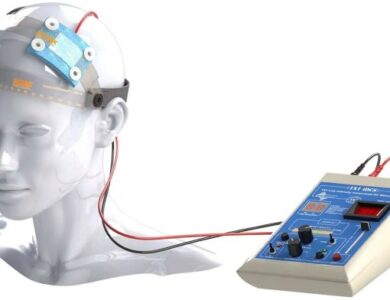Gut Garden to Happy Mind: Can Probiotics Ease Anxiety & Depression?

The bustling world within our gut, teeming with microscopic bacteria, may hold the key to unlocking not just physical health, but mental well-being as well. This brings us to the question: Can probiotics, the live microorganisms that populate our gut, help with anxiety and depression?
But first, let’s crack the code of probiotics.
What are Probiotics?
Probiotics are like microscopic gardeners tending to the fertile soil of our intestines. These friendly bacteria, belonging to the Lactobacillus and Bifidobacterium families, play a crucial role in maintaining a healthy gut environment. They:
- Digest food and absorb nutrients
- Crowd out harmful bacteria and prevent infections
- Produce beneficial substances like vitamins and short-chain fatty acids
- Strengthen the gut barrier, preventing toxins from entering the bloodstream
Why are Probiotics Important?
A balanced gut microbiome, where good bacteria thrive and harmful ones are kept in check, is essential for overall health. It impacts not just digestion and immunity, but also our neurotransmitter production and brain function.
The Gut-Brain Connection:
The gut and the brain are intricately linked through the vagus nerve, a communication highway that relays signals between the two. This gut-brain axis plays a significant role in regulating mood, stress, and emotional well-being.
Can Probiotics Help with Anxiety and Depression?
Research suggests that imbalances in the gut microbiome may contribute to anxiety and depression. Studies have shown that probiotics can:
- Increase production of GABA, a neurotransmitter that promotes relaxation and reduces anxiety.
- Decrease inflammation, which is linked to both anxiety and depression.
- Improve mood and cognitive function.
However, it’s important to note that research is still emerging, and more studies are needed to fully understand the potential of probiotics for managing anxiety and depression.
Foods Rich in Probiotics:
While probiotic supplements are readily available, you can also boost your gut’s good bacteria naturally by incorporating these probiotic-rich foods into your diet:
- Yogurt: Look for varieties with live and active cultures, such as Lactobacillus acidophilus and Bifidobacterium.
- Kefir: This fermented milk drink is packed with a diverse range of probiotics and is a great source of calcium and vitamin B12.
- Kimchi: This traditional Korean side dish is made with fermented vegetables and is an excellent source of probiotics and vitamin K.
- Kombucha: This fizzy fermented tea is another good source of probiotics and antioxidants.
- Sauerkraut: Fermented cabbage, sauerkraut is rich in probiotics and vitamin C.
- Tempeh and miso: These fermented soybean products are great vegetarian sources of protein and probiotics.
Pros and Cons of Probiotics:
Pros:
- Generally safe for most people
- Can improve gut health and digestion
- May help manage anxiety and depression symptoms
- Available in various forms, including supplements, food, and yogurt
Cons:
- Not a cure-all for anxiety and depression
- Not all probiotics are created equal; choose high-quality brands with live and active cultures
- Some people may experience side effects like bloating or gas when taking probiotics
The Bottom Line:
While the research on probiotics for anxiety and depression is promising, it’s important to approach them with realistic expectations. They may not be a magic bullet, but incorporating probiotic-rich foods and potentially considering supplements after consulting a healthcare professional can be a positive step towards gut health and overall well-being. Remember, a holistic approach that includes healthy lifestyle choices is key to managing anxiety and depression.
Disclaimer: This article is for informational purposes only and should not be interpreted as medical advice. Please consult your doctor before taking any probiotics or making significant changes to your diet.
In conclusion, the link between gut health and mental well-being is an exciting area of research with immense potential. While further studies are needed to fully understand the role of probiotics in managing anxiety and depression, their potential to nurture a healthy gut and foster emotional well-being makes them a valuable addition to a holistic approach to mental health.




